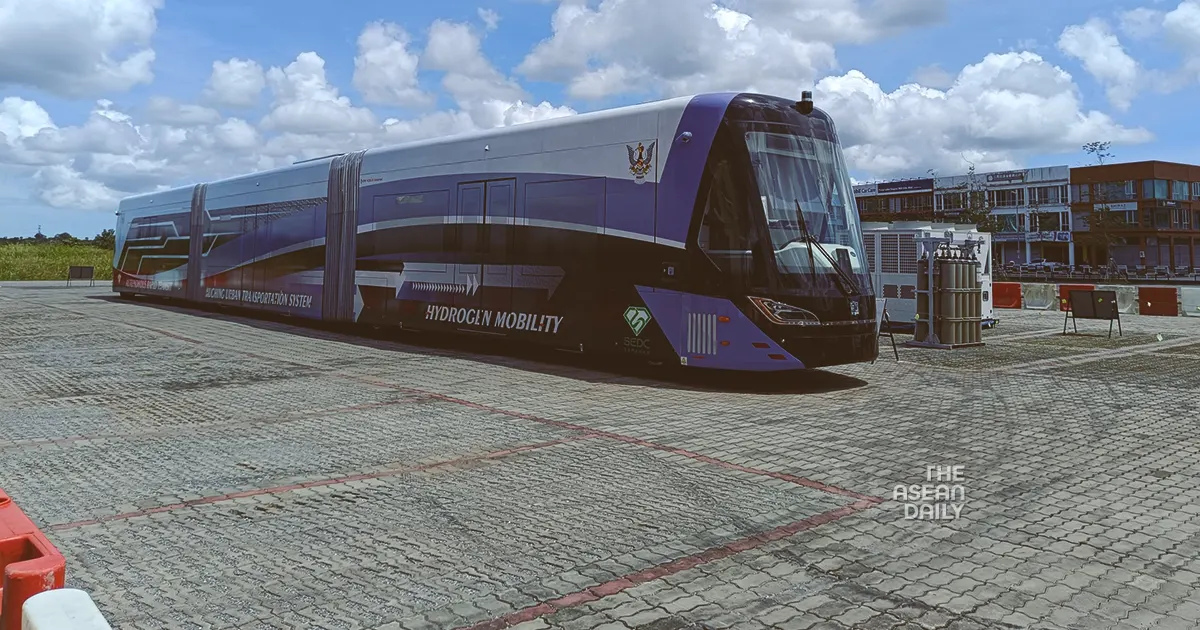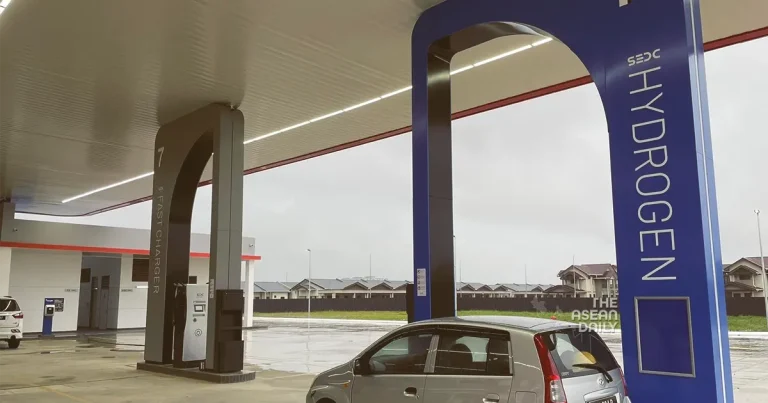21-11-2023 (KUALA LUMPUR) Nestled in the heart of Borneo, the East Malaysian state of Sarawak is poised to make a groundbreaking leap towards becoming a major exporter of green energy. With its abundant natural resources, the state is leading Malaysia’s charge into a low-carbon economy, leveraging its wealth of hydropower to spearhead the production of green hydrogen.
Sarawak embarked on its journey into hydrogen as a renewable energy source in 2019, marked by the inauguration of Southeast Asia’s first integrated hydrogen production plant. The state’s strategic position, coupled with ample water supply and cost-effective hydropower, positions it as a key player in boosting hydrogen exports, according to industry observers.
Hydrogen’s Pivotal Role in Sarawak’s Future Energy Landscape
Premier Abang Johari Openg envisions hydrogen energy playing a pivotal role in the future of mobility. As technological advancements drive down production costs, Premier Abang Johari notes a significant reduction in the energy required to produce hydrogen, from 60kWh to 15kWh. With Sarawak boasting the potential to generate 20GW of hydropower, plans are underway to harness this energy through cascading dams, aiming to surpass 10GW by 2030.
Recent collaborations with Japanese and South Korean companies have seen Sarawak ink agreements for two hydrogen production projects in Bintulu, with a combined capacity exceeding 200,000 tonnes per year. Operational by 2027, these projects signify Sarawak’s foray into the global hydrogen market, with a significant portion earmarked for export.
On the domestic front, Sarawak is actively developing its hydrogen production plant and refuelling station to support its urban transport system. State-owned company Petroleum Sarawak Berhad (PETROS) launched its first multi-fuel station last year, featuring a hydrogen dispenser and electric charging options. PETROS aims to establish six such stations by 2024, with a target of 100 by 2030.
Evaluating the Economic Viability of Hydrogen
While hydrogen remains relatively expensive, concerns about the economic viability and long-term sustainability of hydrogen projects have been raised. Opposition lawmaker Violet Yong questions the multi-billion-dollar spending on these projects, expressing reservations about the developmental stage of hydrogen technology. Premier Abang Johari, however, is resolute in proving critics wrong, emphasizing the broader socio-economic impact.
With approximately US$1 billion invested in hydrogen development, Sarawak anticipates a return on investment in the near future. Premier Abang Johari sees renewable energy as a catalyst for state income generation and the creation of high-paying jobs, particularly benefitting rural communities.
Sarawak’s Groundbreaking Hydrogen-Powered Urban Transport System
In line with Sarawak’s ambition to cultivate a hydrogen economy, the state capital, Kuching, is set to become the first in Southeast Asia to utilize hydrogen to power its urban transport system. Hydrogen-powered autonomous rapid transit (ART) vehicles and buses are earmarked to form the backbone of Kuching’s urban transport, providing an eco-friendly alternative and alleviating traffic congestion.

The ART network, covering 70km with three lines, is slated to commence passenger service in stages from the fourth quarter of 2025. Premier Abang Johari envisions hydrogen as the future fuel that mitigates carbon emissions, emphasizing its superiority over lithium batteries in terms of environmental impact.
Trials of the ART system have been conducted in the green industrial zone of Isthmus, located outside Kuching. Sarawak Metro, tasked with developing the urban transport network, has been collecting technical data on vehicle movement guidance and hydrogen fuel cell propulsion systems. Additionally, three hydrogen buses have been on trial runs in the capital since 2020, with over 18,000 passengers having experienced this sustainable mode of transportation.
Transport Minister Lee Kim Shin highlights the efficiency of hydrogen buses, capable of running approximately 250km on a single refill, with a faster refuelling process compared to charging batteries. While feasibility studies have been conducted, opposition lawmakers question the practicality of implementing a hydrogen-powered transport system.
Beyond Land: Sarawak’s Holistic Approach to Green Energy
Sarawak’s commitment to green energy extends beyond land-based initiatives. Efforts are underway to produce sustainable aviation fuel from algae and green methanol to power the state’s shipping industry. Premier Abang Johari envisions hydrogen technology capturing the imagination of the younger generation, emphasizing the need for talent development to sustain the green economy.
Plans for free tertiary education for Sarawakians aim to equip students with the necessary skills to propel the state’s green initiatives. Sarawak’s transition to green energy represents a comprehensive strategy, encompassing hydrogen production, a hydrogen-powered urban transport system, sustainable aviation fuel, and talent development.




